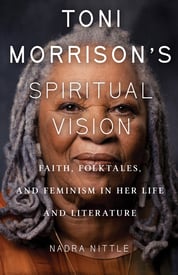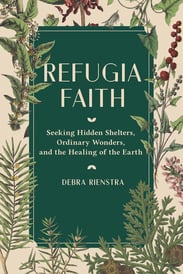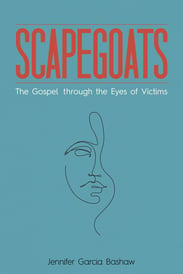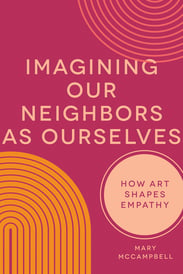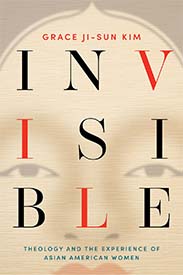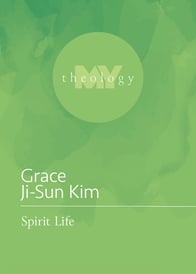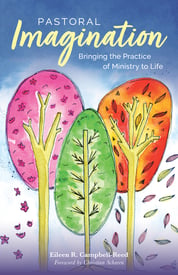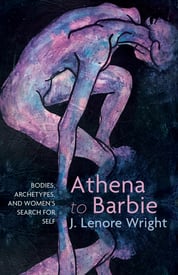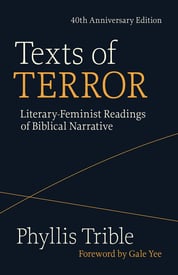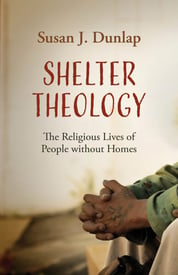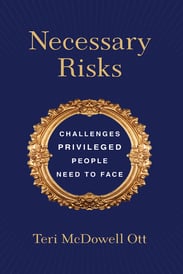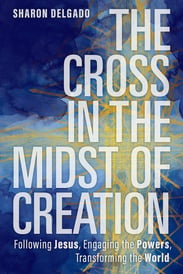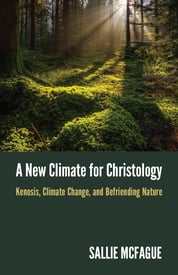
We’re privileged to have published a wide range of women from different walks of life across many disciplines. We highlight their work throughout the year, but we celebrate them with a little more fanfare with a selection of recent works this month.
Toni Morrison's Spiritual Vision Faith, Folktales, and Feminism in Her Life and Literature
Nadra Nittle
When Toni Morrison died in August 2019, she was widely remembered for her contributions to literature as an African American woman, an identity she wore proudly. Morrison was clear that she wrote from a Black, female perspective and for others who shared her identity. But just as much as she was an African American writer, Toni Morrison was a woman of faith.
Morrison filled her novels with biblical allusions, magic, folktales, and liberated women, largely because Christianity, African American folk magic, and powerful women defined her own life. She grew up with family members who could interpret dreams, predict the future, see ghosts, and go about their business. Her relatives, particularly her mother, were good storytellers, and her family's oral tradition included ghost stories and African American folktales. But her family was also Christian. As a child, Morrison converted to Catholicism and chose a baptismal name that truly became her own—Anthony, from St. Anthony of Padua—going from Chloe to Toni. Morrison embraced both Catholicism and the occult as a child and, later, as a writer. She was deeply religious, and her spirituality included the Bible, the paranormal, and the folktales she heard as a child.
Refugia Faith Seeking Hidden Shelters, Ordinary Wonders and the Healing of the Earth
Debra Rienstra
Refugia Faith: Seeking Hidden Shelters, Ordinary Wonders, and the Healing of the Earth explores how Christian spirituality and practice must adapt to prepare for life on a climate-altered planet.
Refugia (reh-FU-jee-ah) is a biological term describing places of shelter where life endures in times of crisis, such as a volcanic eruption, fire, or stressed climate. Ideally, these refugia endure, expand, and connect so that new life emerges.
Debra Rienstra applies this concept to human culture and faith, asking, In this era of ecological devastation, how can Christians become people of refugia? How can we find and nurture these refugia, not only in the biomes of the earth, but in our human cultural systems and in our spiritual lives? How can we apply all our love and creativity to this task as never before?
Rienstra recounts her own process of reeducation—beginning not as a scientist or an outdoors enthusiast but by examining the wisdom of theologians and philosophers, farmers and nature writers, scientists and activists, and especially people on the margins.
By weaving nature writing, personal narrative, and theological reflection, Rienstra grapples honestly with her own fears and longings and points toward a way forward—a way to transform Christian spirituality and practice, become a healer on a damaged earth, and inspire others to do the same.
Refugia Faith speaks to people securely within the faith as well as to those on the edge, providing a suitable entry for those who sense that this era of upheaval requires a transformed faith but who don't quite know where to begin.
Scapegoats
The Gospel through the Eyes of Victims
Jennifer Garcia Bashaw
Scapegoats are innocent victims who have experienced blame and violence at the hands of society. René Girard proposes that the Gospels present Jesus as a scapegoat whose innocent death exposes how humans have always created scapegoats. This revelation should have cured societal scapegoating, yet those who claim to live by the Gospels have missed that message. They continue to scapegoat and remain blind to the suffering of scapegoats in modern life.
Christians today tend to read the New Testament as victors, not as victims. The teachings and actions of Jesus thus lose much of their subversive significance. The Gospels become one harmonized story about individual salvation rather than distinct representations of Jesus's revolutionary work on behalf of victims. Scapegoats revisits the Gospel narratives with the understanding that they tell scapegoats' stories, and that through those stories the kingdom of God is revealed. Bashaw goes beyond Girard's arguments to show that Jesus's whole public ministry (not only his death) combats the marginalization of victims. These scapegoat stories work together to illuminate an essential truth of the Gospels--that Jesus modeled a reality in which victims become survivors and the marginalized become central to the kingdom.
Imagining Our Neighbors as Ourselves
How Art Shapes Empathy
Mary W. McCampbell
Anyone reading comments in online spaces is often confronted with a collective cultural loss of empathy. This profound loss is directly related to the inability to imagine the life and circumstances of the other. Our malnourished capacity for empathy is connected to an equally malnourished imagination. In order to truly love and welcome others, we need to exercise our imaginations, to see our neighbors more as God sees them than as confined by our own inadequate and ungracious labels. We need stories that can convict us about our own sins of omission or commission, enabling us to see the beautiful, complex world of our neighbors as we look beyond ourselves.
In this book, Mary McCampbell looks at how narrative art—whether literature, film, television, or popular music—expands our imaginations and, in so doing, emboldens our ability to love our neighbors as ourselves. The prophetic artists in these pages—Graham Greene, Toni Morrison, and Flannery O'Connor among them--show through the form and content of their narrative craft that in order to love, we must be able to effectively imagine the lives of others. But even though we have these rich opportunities to grow emotionally and spiritually, we have been culturally trained as consumers to treat our practice of reading, watching, and listening as mere acts of consumption.
McCampbell instead insists that truly engaging with artists who have the prophetic capacity to create art that wakes us up can jolt us from our typically self-concerned spiritual stupors. She focuses on narrative art as a means of embodiment and an invitation to participation, hospitality, and empathy. Reading, seeing, or listening to the story of someone seemingly different from us can awaken us to the very real spiritual similarities between human beings. The intentionality that it takes to surrender a bit of our own default self-centeredness is an act of spiritual formation. Imagining Our Neighbors as Ourselves presents a journey through initial self-reflection to a richer, more compassionate look outward, as narrative empowers us to exercise our imaginations for the sake of expanding our capacity for empathy.
Invisible Theology and the Experience of Asian American Women
Invisibility persists throughout the Asian American story. On the one hand, xenophobia has long contributed to racism and discrimination toward Asian Americans. On the other hand, terms such as perpetual foreigner and honorific whites have been thrust upon Asian Americans, minimizing their plight with racism and erasing their experience as racial minorities. Even more indiscernible in America's racial landscape are Asian American women. The compounded effects of a patriarchal Asian culture and a marginalizing American culture are formidable, steadily removing the recognition of these women's lives, voices, and agency.
Invisibility is not only a racial and cultural issue, but also a profound spiritual issue. The Western church—and its theology—has historically obscured the concerns of Asian Americans. The Asian American church relegates women to domestic, supportive roles meant to uplift male leaders.
In Invisible, Grace Ji-Sun Kim examines encounters with racism, sexism, and xenophobia as she works toward ending Asian American women's invisibility. She deploys biblical, sociological, and theological narratives to empower the voices of Asian American women. And she shares the story of her heritage, her family history, her immigration, and her own experience as an Asian American woman. Speaking with the weight of her narrative, she proclaims that the histories, experiences, and voices of Asian American women must be rescued from obscurity. Speaking with the weight of a theologian, she powerfully paves the way for a theology of visibility that honors the voice and identity of these women. As Asian American women work toward a theology of visibility, they uplift the voiceless and empower the invisible, moving beyond experiences of oppression and toward claiming their space in the kin-dom of God.
Grace Ji-Sun Kim
Spirit Life centers on the Spirit as an avenue for better understanding God and reconciling with our faith. The Spirit is present in the Old Testament as ruach and in the New Testament as pneuma. When the field of theology was prominently German-led, theologians used the word geist to talk about the spirit. As an Asian-American theologian existing in the liminality between multiple cultural spheres, Kim finds it necessary to retrieve and disseminate Asian words and religious symbols into the mainstream discourse to revolutionize the accessibility and global understanding of God today. One important Asian concept is chi, translated as wind, breath, spirit, energy, much like ruach, pneuma, and geist. Chi is a fitting term for coming to know God as the Spirit as it effectively conveys God's presence in the world. As such, we can move toward a nondualistic theology that provides an abundant space for everyone, including the marginalized and the subordinated, paving a path toward liberation and radical demarginalization.
In the My Theology series, the world's leading Christian thinkers explain some of the principal tenets of their theological beliefs in concise, pocket-sized books.
Pastoral Imagination Bringing the Practice of Ministry to Life
In Pastoral Imagination: Bringing the Practice of Ministry to Life, Eileen R. Campbell-Reed informs and inspires the practice of ministry through slices of "on the ground" learning experienced by seminarians, pastors, activists, and chaplains and gathered from qualitative studies of ministry. Each of the fifty chapters explores a single concept through story, reflection, and provocative open-ended questions designed to spark conversation between ministers and mentors, among ministry peers, or for personal journal reflections. The book provides a framework for understanding ministry as an embodied, relational, integrative, and spiritual practice.
Pastoral Imagination is closely integrated with the author's Three Minute Ministry Mentor web resource, which introduces the topics in the book through brief video presentations. The book serves as a coaching guide and a ministry mentor in its own right by expanding on these topics through the author's reflections, observations, and questions. Addressing the importance of the practice of ministry, Campbell-Reed states: "Ministry itself, like most professions and complex practices, is dogged and driven by a rush to achieve. Yet to focus on achievement can be disastrous, especially if we skip over the steps for learning. To learn the practice of ministry—a multifaceted professional and spiritual practice--takes time and preparation, risk and responsibility, support and feedback."
The book can be used by individuals for personal growth; with groups in new-pastor retreats, CPE training programs, ministry peer groups, or supervision settings such as internship or field education; for devotional inspiration at staff meetings; and in seminary classrooms that prioritize teaching ministry as a practice.
Discover more resources from Eileen Campbell-Reed
Athena to Barbie Bodies, Archetypes, and Women's Search for Self
J. Lenore Wright
Athena to Barbie explores the vexed nature of being a woman. It maps the four corners of impossible choice a female faces because of the female body—her body as spiritual space (Mary), as political space (Athena), as erotic space (Venus), and as materialist space (Barbie). The book tracks the difficulty women face in understanding themselves as someone who has, but is not only, a body. The question of identity is particularly fraught and complicated when it comes to women—because the ability to bear children is a double-edged sword. Across time (including right now), having a womb has shaped how women are viewed and treated in negative ways, and women's childbearing abilities have been used to stereotype, oppress, and constrain them. Pregnancy is powerful, but the possibility of pregnancy comes with impossible pressures and choices. This book takes on the task of reconciliation--how women can understand themselves in light of their bodies--through an intense dive into history, art, literature, theology, and, particularly, philosophy.
Texts of Terror (40th Anniversary Edition) Literary-Feminist Readings of Biblical Narratives
Phyllis Trible
In this seminal work of biblical studies, renowned scholar Phyllis Trible focuses on four variations on the theme of terror in the Bible. By combining the discipline of literary criticism with the hermeneutics of feminism, she reinterprets the tragic stories of four women in ancient Israel: Hagar, Tamar, an unnamed concubine, and the daughter of Jephthah. In highlighting the silence, absence, and opposition of God, as well as human cruelty, Trible shows how these neglected stories—interpreted in memoriam—challenge both the misogyny of Scripture and its use in church, synagogue, and academy.
Shelter Theology The Religious Lives of People without Homes
Susan J. Dunlap
Susan J. Dunlap offers the theological fruits of time spent working as a chaplain with people without homes. After depicting the local history of her small southern city, she describes the prayer service she co-leads in a homeless shelter. Clients offer words of faith and encouragement that take the form of prayer, sayings, testimony, song, and short sermons. Dunlap describes both these forms of expression and their theological content. She asserts that these forms and beliefs are a means of survival and resistance in a hostile world. The ways they serve these purposes are further demonstrated in life stories told as testimonies, incorporating scripture, sayings, oral tradition, and popular culture. Dunlap concludes that white supremacy and neoliberalism have produced the problem of homelessness in America and are forms of idolatry. The faith and practices shared at the shelter are spiritual and theological resources for people in the grip of and seeking freedom from this idolatry. Claiming that only God can free us from bondage to idolatry and that to draw close to the poor is to draw close to God, Dunlap calls for proximity to people living without homes who are practicing their faith amid poverty.
Necessary Risks Challenges Privileged People Need to Face
Teri McDowell Ott
Good people of privilege are increasingly aware of racial injustice but unsure what to do about it and afraid to venture into challenging dialogues and spaces. Necessary Risks: Challenges Privileged People Need to Take encourages readers to value risk-taking as the path toward a more equitable and just world.
Building on skillful, memoir-like stories, Teri McDowell Ott explores ten risks—including learning, teaching, leading, following, going, and staying—with which she has wrestled in her work with diverse populations as the chaplain of a liberal arts college and as a volunteer in a men's state prison.
Ott then reflects on how these experiences, including mistakes in often tense settings, have forced her to confront and wrestle with the systems and structures that have privileged her as a white Christian woman. With humility, she relates how risk-taking has led to profound changes in herself and her community.
These necessary risks are also informed by Ott's study of authors, theologians, and scholars of color, such as Martin Luther King Jr., James Baldwin, bell hooks, Audre Lorde, Gloria Anzaldúa, Ada María Isasi-Díaz, and Eddie Glaude Jr.
Demonstrating that in the face of injustice, white silence and inaction are not neutral, Necessary Risks leads readers to feel less fearful and more capable in diverse settings and ultimately to contribute to personal and communal learning and growth, change and transformation.
The Cross in the Midst of Creation Following Jesus, Engaging the Powers, Transforming the World
Sharon Delgado
The Cross in the Midst of Creation: Following Jesus, Engaging the Powers, Transforming the World links Christian understandings of creation, atonement, and the biblical principalities and powers. Sharon Delgado asserts that the crucifixion is ongoing as institutional powers diminish human life and destroy creation, and that the resurrection is ongoing as faith overcomes despair and the Spirit equips people to rise in courage and follow Jesus into the heart of the struggle for a transformed world.
This book explores and critiques traditional doctrines and popular teachings about the cross and draws from various stories of Jesus and biblical metaphors to offer life-enhancing perspectives on this core symbol of Christian faith. It presents the cross as a symbol of God's presence throughout creation and undying love as revealed in Jesus; also explored are the path of discipleship, the moral bankruptcy of the dominating powers, engagement through nonviolent resistance, and above all, God's triumph over the powers, offering hope for the world.
It also challenges followers of Jesus to throw off despair and complacency, exposes disempowering and hate-filled teachings that claim to be Christian, and reclaims the gospel as a force for healing, empowerment, and both personal and social transformation.
By participating in the ongoing story of the life, death, and resurrection of Jesus and experiencing the tangible presence of the Holy Spirit, we discover the creative power at the heart of this and every universe: the all-encompassing, infinite, eternal love of God.
A New Climate for Christology Kenosis, Climate Change, and Befriending Nature
Sallie McFague
For decades, Sallie McFague lent her voice and her theological imagination to addressing and advocating for the most important issues of our time. In doing so, she influenced an entire generation and empowered countless people in their efforts to put religion in the service of meeting human needs in difficult times.
In this final book, finished in the year before her death in 2019, McFague summarizes the work of a lifetime with a clear call to live in "such a way that all might flourish." The way, she argues, is the "kenotic interpretation of Christianity: the odd arrangement whereby in order to gain your life, you must lose it. The way of the cross is total self-emptying so that one can receive life, real life, and then pass this life on."
A masterful and life-giving summing-up of a theology that makes a profound difference for us, our communities, and our planet.

